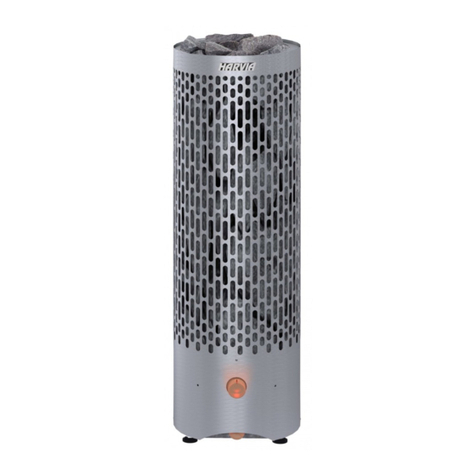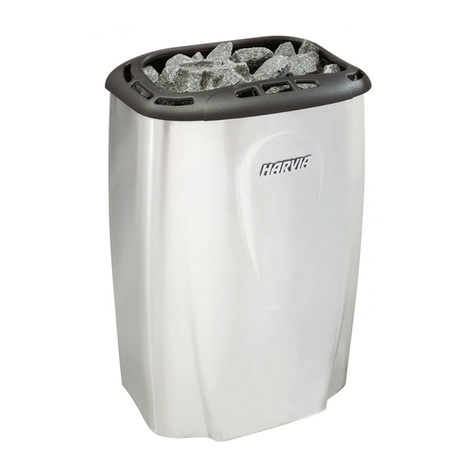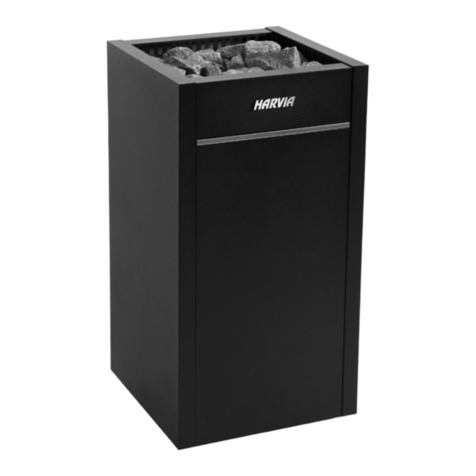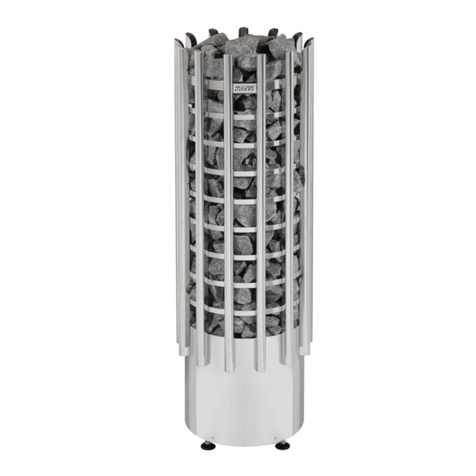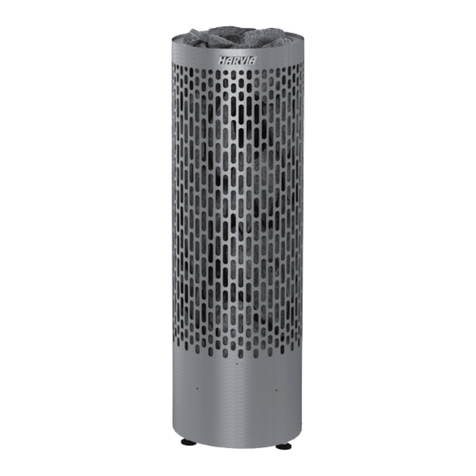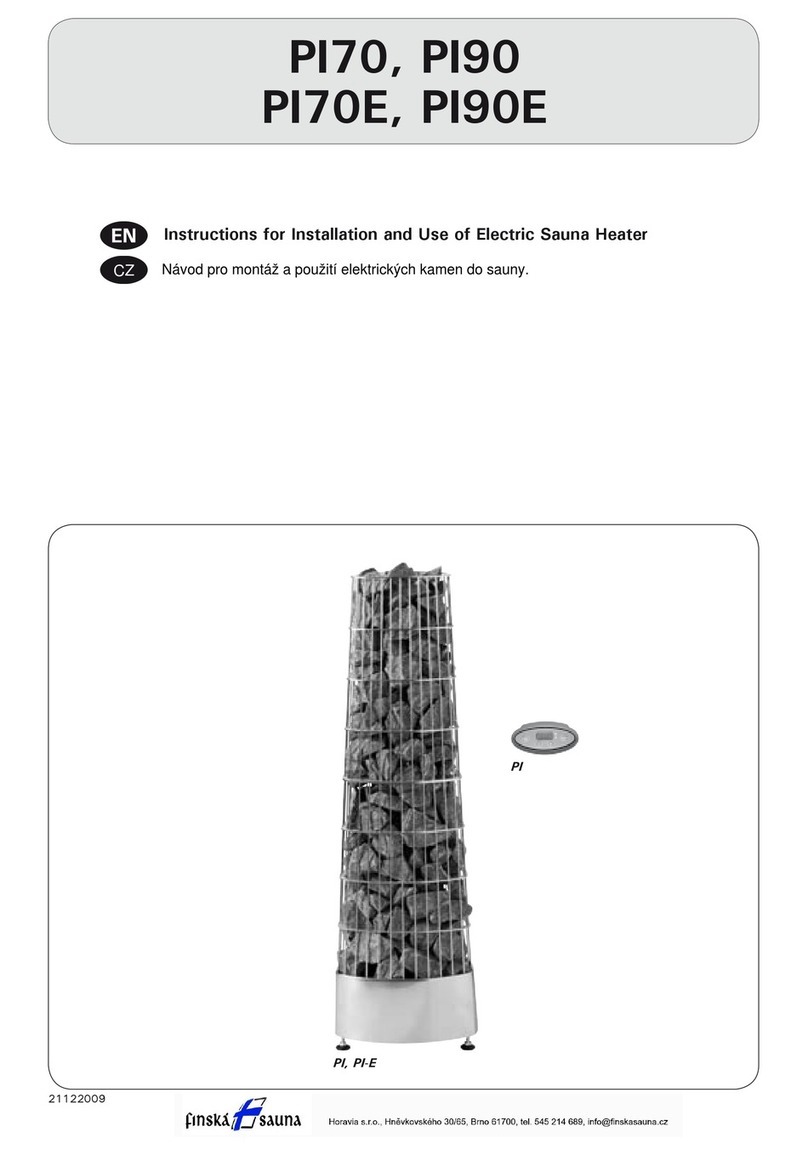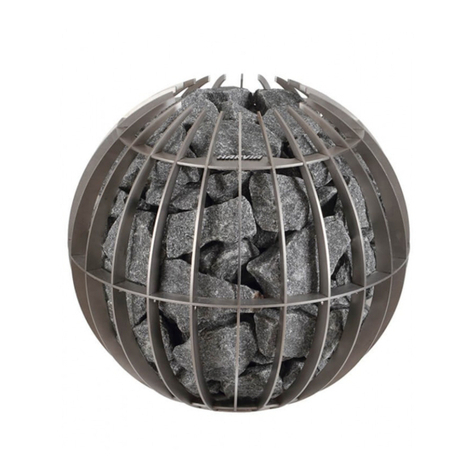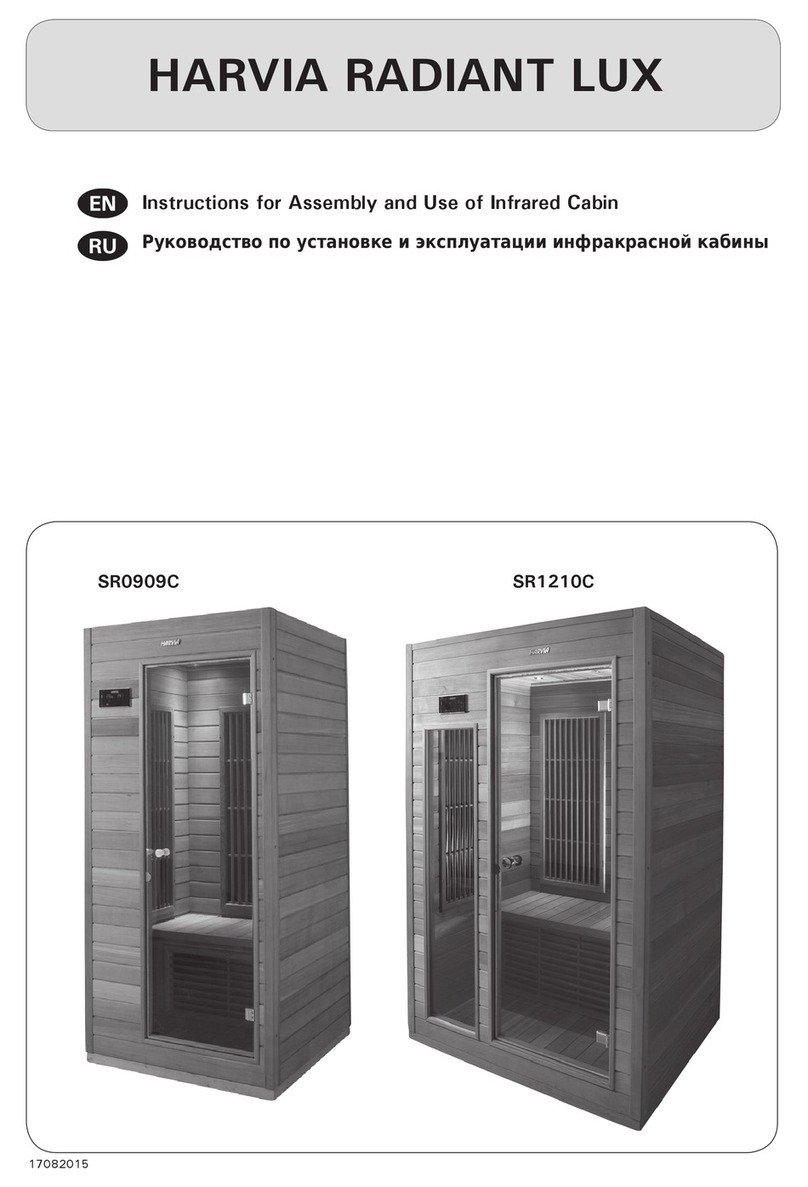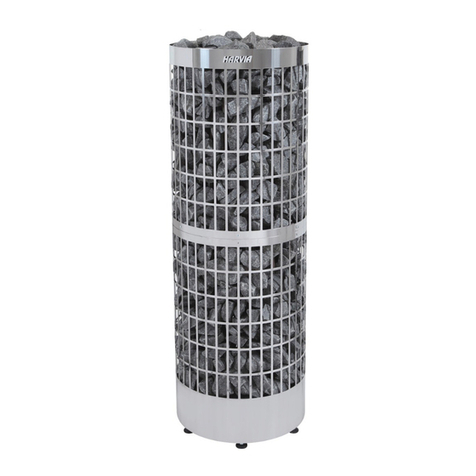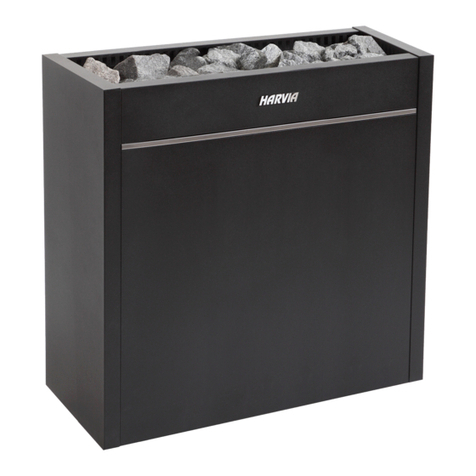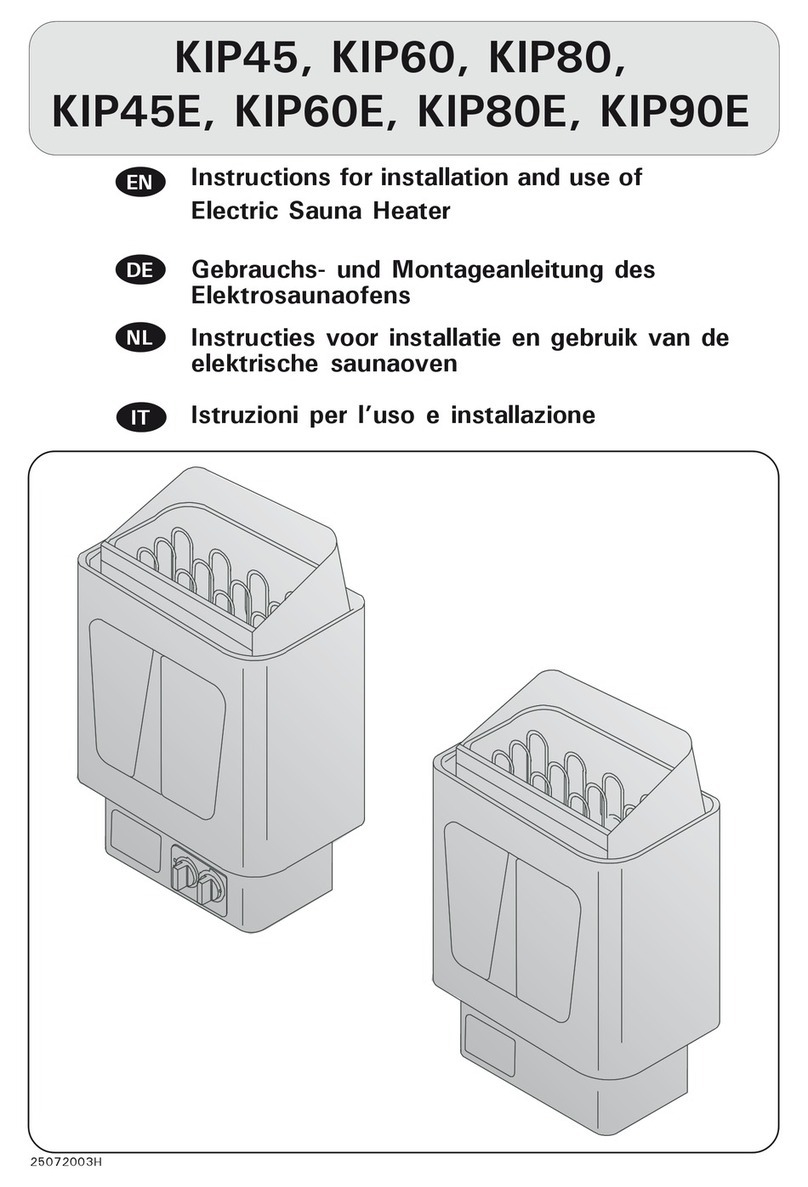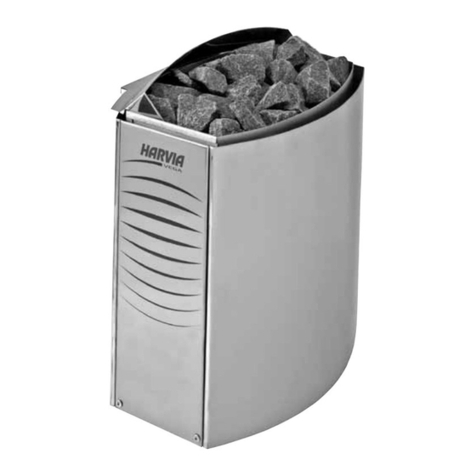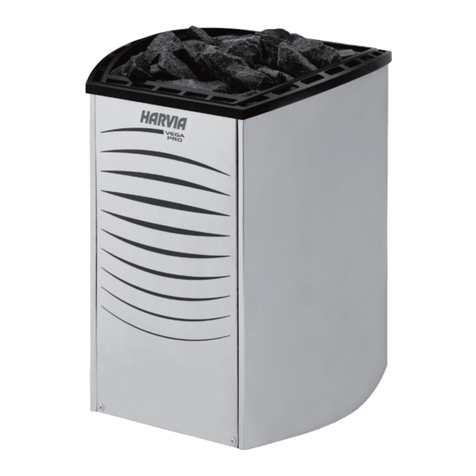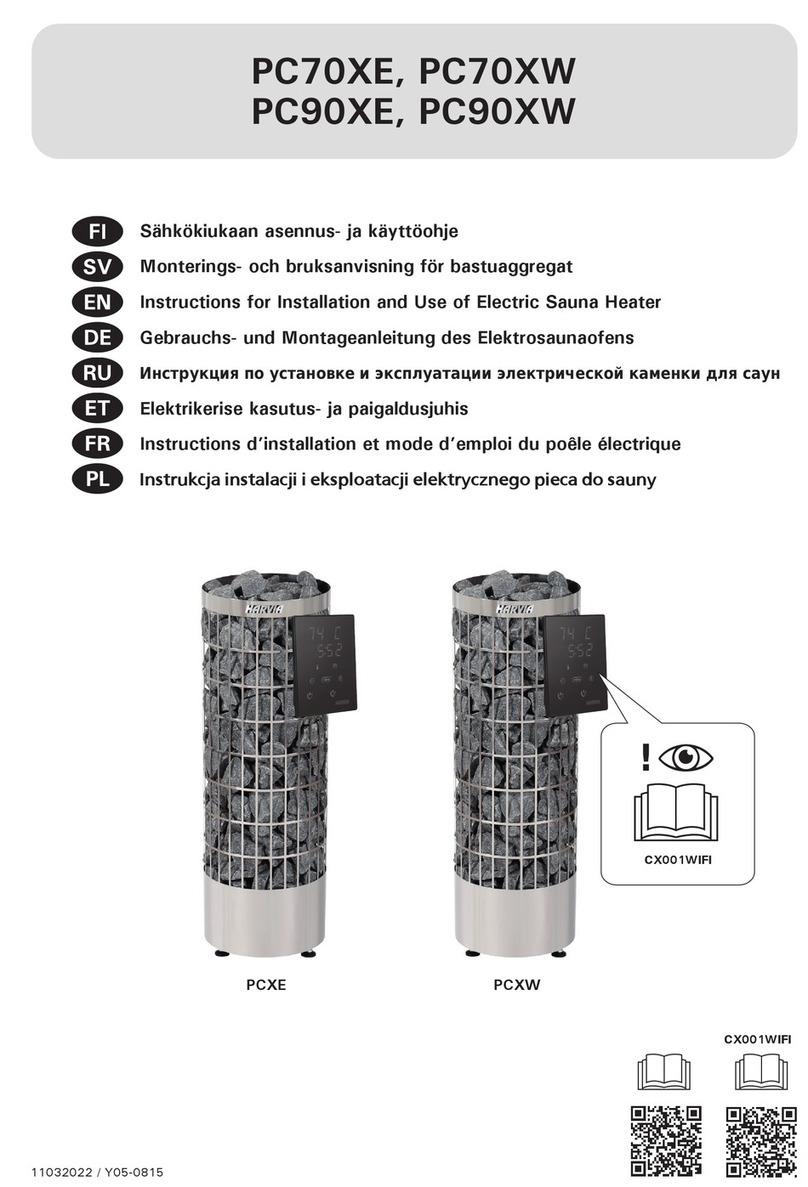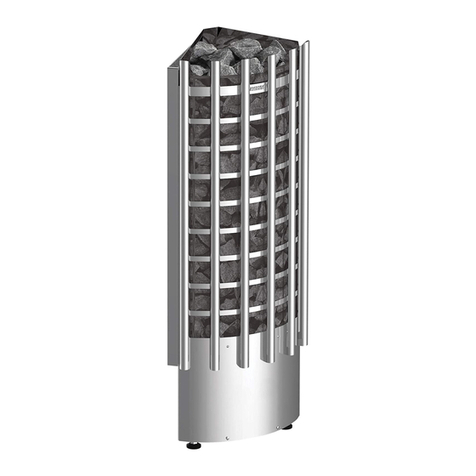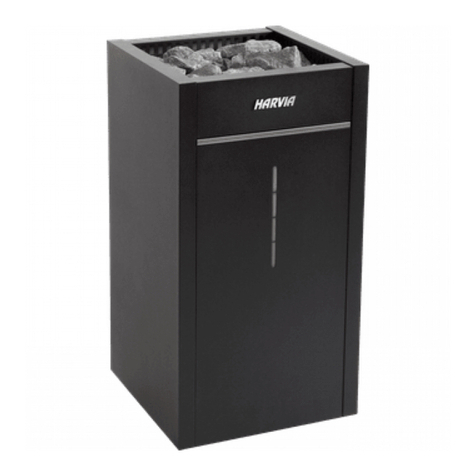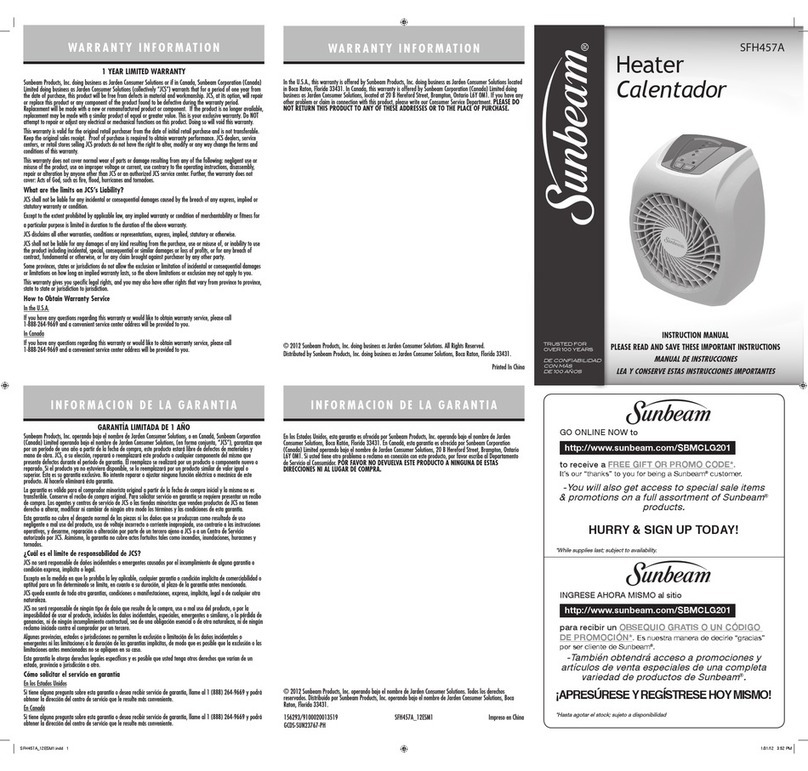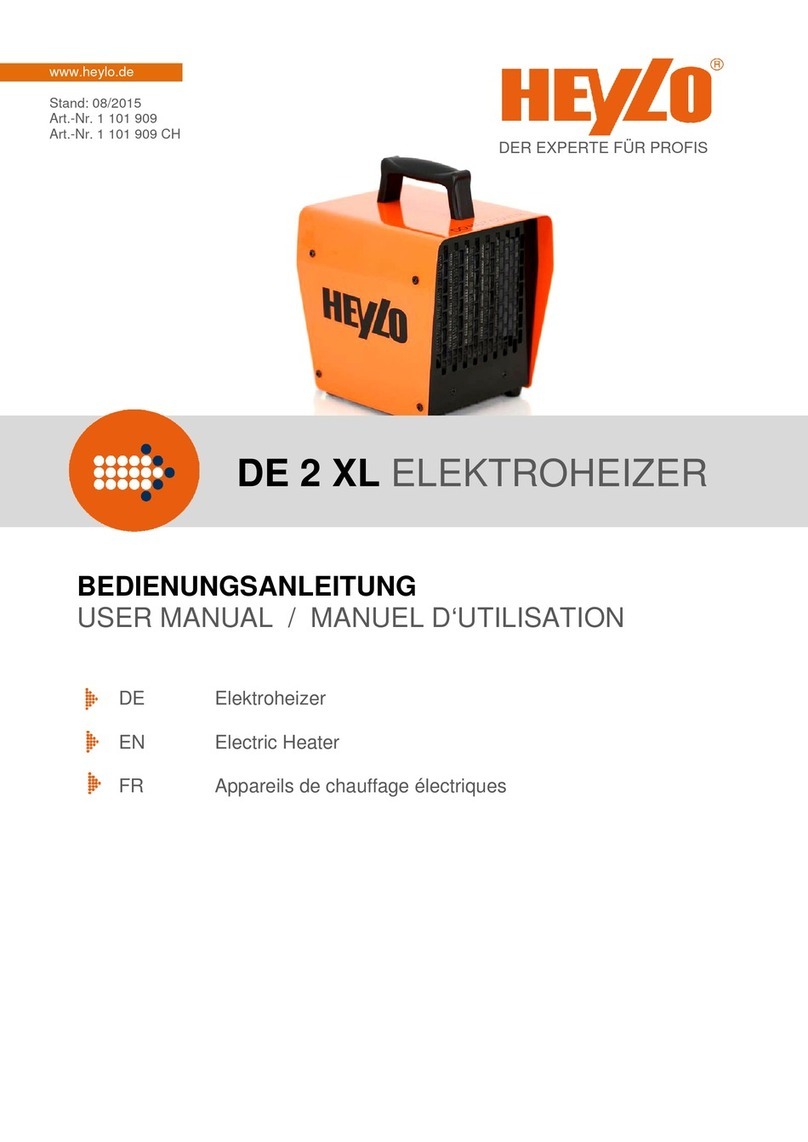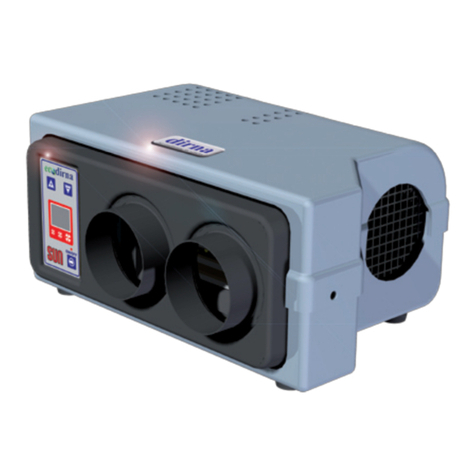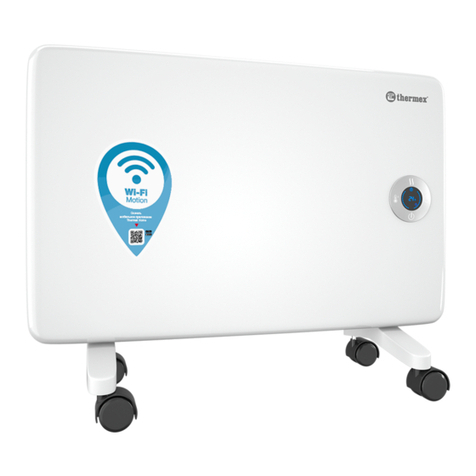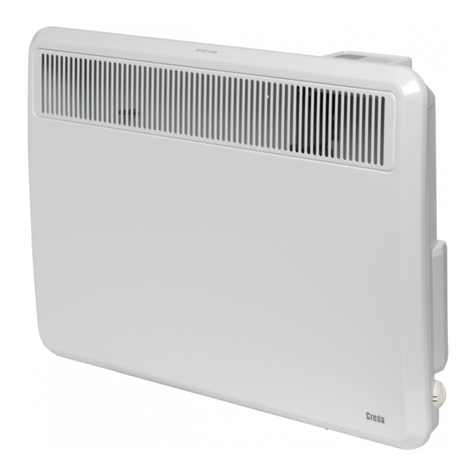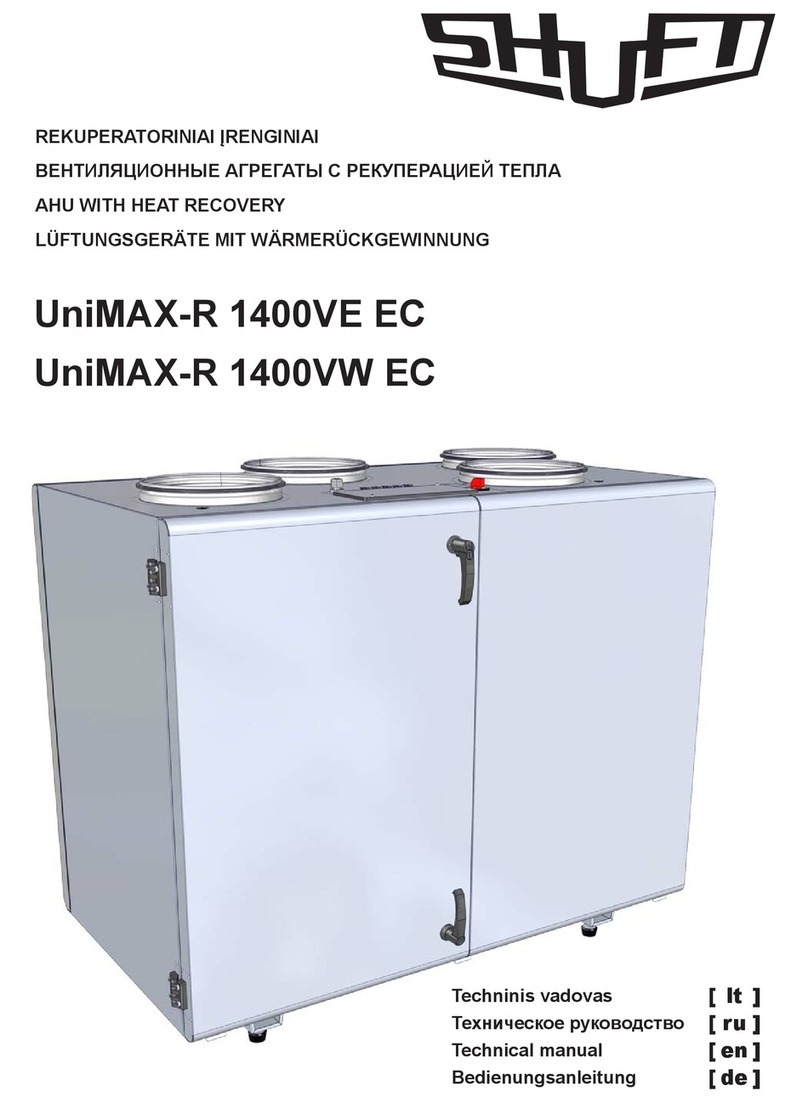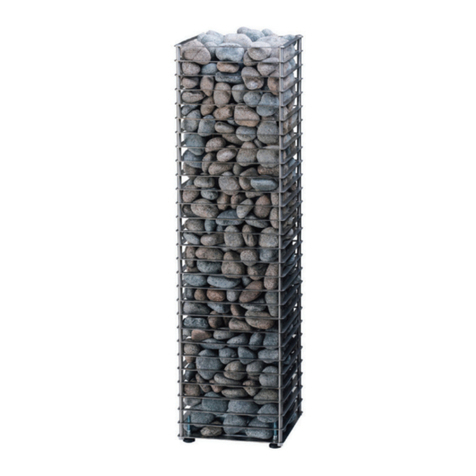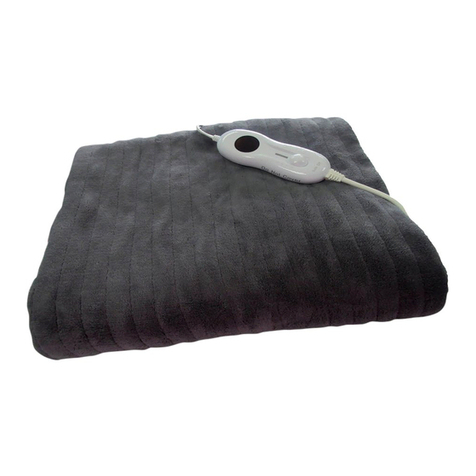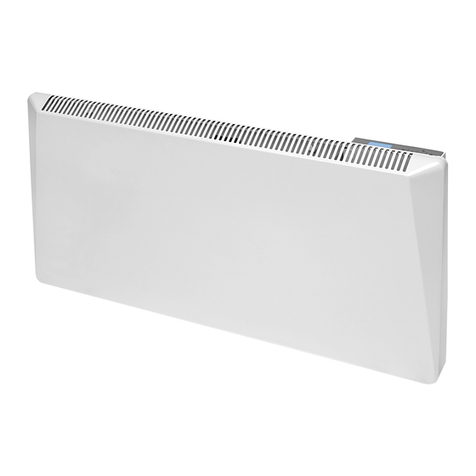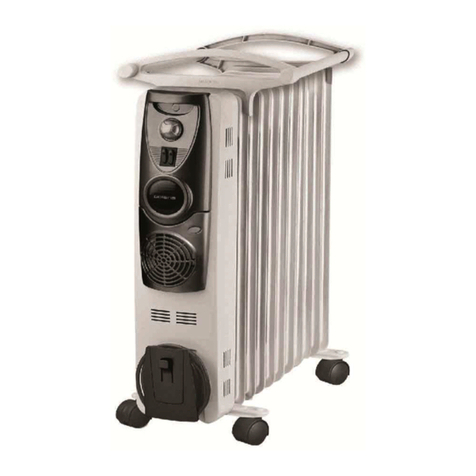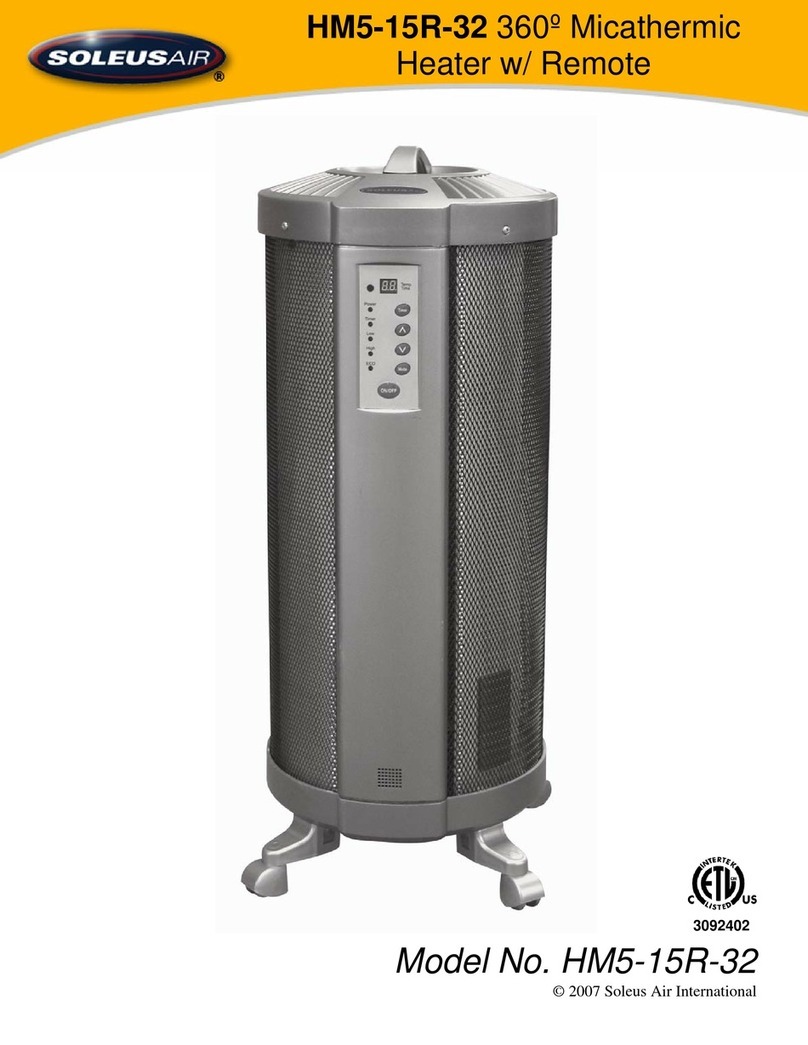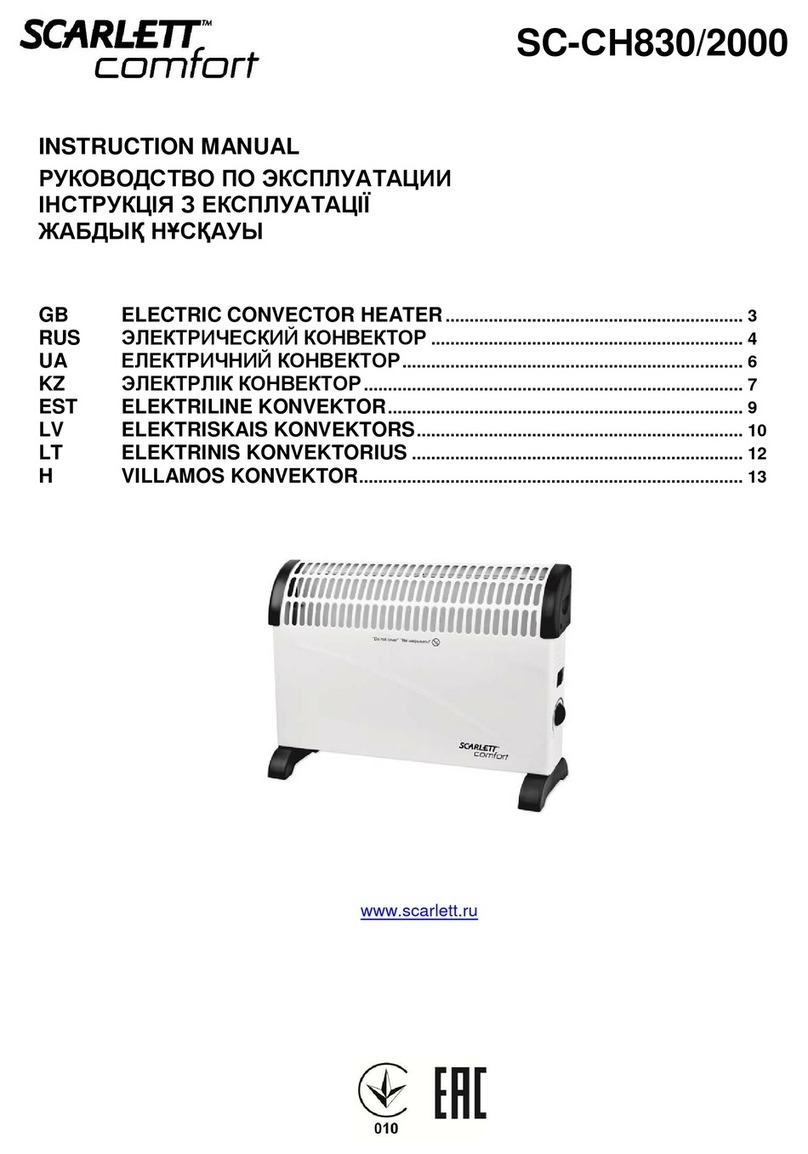
EN
4
1.4. Throwing Water on Heated Stones
The air in the sauna room becomes dry when warmed
up. Therefore, it is necessary to throw water on the
heated stones to reach a suitable level of humidity in
the sauna. The effect of heat and steam on people
varies – by experimenting, you can find the levels of
temperature and humidity that suit you best.
You can adjust the nature of the heat from soft to
sharp by throwing water either to the front of the
heater or straight on top of the stones.
Never throw water on the stones when there
are people near the heater, because hot steam
may burn their skin. The maximum volume of the
ladle is 0.2 litres. The water to be thrown on the
heated stones should meet the requirements of
clean household water (table 1). Only special aromas
designed for sauna water may be used. Follow the
instructions given on the package.
1.5. Instructions for Bathing
• Begin by washing yourself.
• Stay in the sauna for as long as you feel com-
fortable.
• Forget all your troubles and relax.
• According to established sauna conventions,
you must not disturb other bathers by speaking
in a loud voice.
• Do not force other bathers from the sauna by
throwing excessive amounts of water on the
stones.
• Cool your skin down as necessary. If you are in
good health, you can have a swim if a swim-
ming place or pool is available.
• Wash yourself after bathing.
• Rest for a while and let your pulse go back to
normal. Have a drink of fresh water or a soft
drink to bring your fluid balance back to normal.
1.6. Warnings
• Staying in the hot sauna for long periods of
time makes the body temperature rise, which
may be dangerous.
• Keep away from the heater when it is hot. The
stones and outer surface of the heater may
burn your skin.
• Keep children away from the heater.
• Do not let young, handicapped or ill people
bathe in the sauna on their own.
• Consult your doctor about any health-related
Table 1. Water quality requirements
limitations to bathing.
• Consult your child welfare clinic about taking
little babies to the sauna.
• Be very careful when moving in the sauna, as
the platform and floors may be slippery.
• Never go to a hot sauna if you have taken alco-
hol, strong medicines or narcotics.
• Never sleep in a hot sauna.
• Sea air and a humid climate may corrode the
metal surfaces of the heater.
• Do not hang clothes to dry in the sauna, as this
may cause a risk of fire. Excessive moisture content
may also cause damage to the electrical equipment.
1.6.1. Symbols descriptions
Read operators manual.
Do not cover.
1.7. Troubleshooting
All service operations must be done by profes-
sional maintenance personnel.
The heater does not heat.
• Check that the fuses to the heater are in good
condition.
• Check that the connection cable is connected
( 3.4.).
• Check that the control panel shows a higher
figure than the temperature of the sauna.
• Check that the overheat protector has not gone
off. ( 3.5.)
The sauna room heats slowly. The water thrown
on the sauna stones cools down the stones
quickly.
• Check that the fuses to the heater are in good
condition.
• Check that all heating elements glow when the
heater is on.
• Turn the temperature to a higher setting.
• Check that the heater output is sufficient (
2.3.).
• Check the sauna stones ( 1.1.). Too tightly
piled stones, the settling of stones with time
or wrong stone type can hinder the air flow
through the heater, which results in reduced
heating efficiency.
• Check that the sauna room ventilation has been
Water properties Effect Recommendation
Humus concentration Colour, taste, precipitates <12 mg/l
Iron concentration Colour, odour, taste, precipitates <0,2 mg/l
Manganese (Mn) concentration Colour, odour, taste, precipitates <0,10 mg/l
Hardness: most important substances
are magnesium (Mg) and lime, i.e.
calcium (Ca)
Precipitates Mg: <100 mg/l
Ca: <100 mg/l
Chloride-containing water Corrosion Cl: <100 mg/l
Chlorinated water Health risk Forbidden to use
Seawater Rapid corrosion Forbidden to use
Arsenic and radon concentration Health risk Forbidden to use
